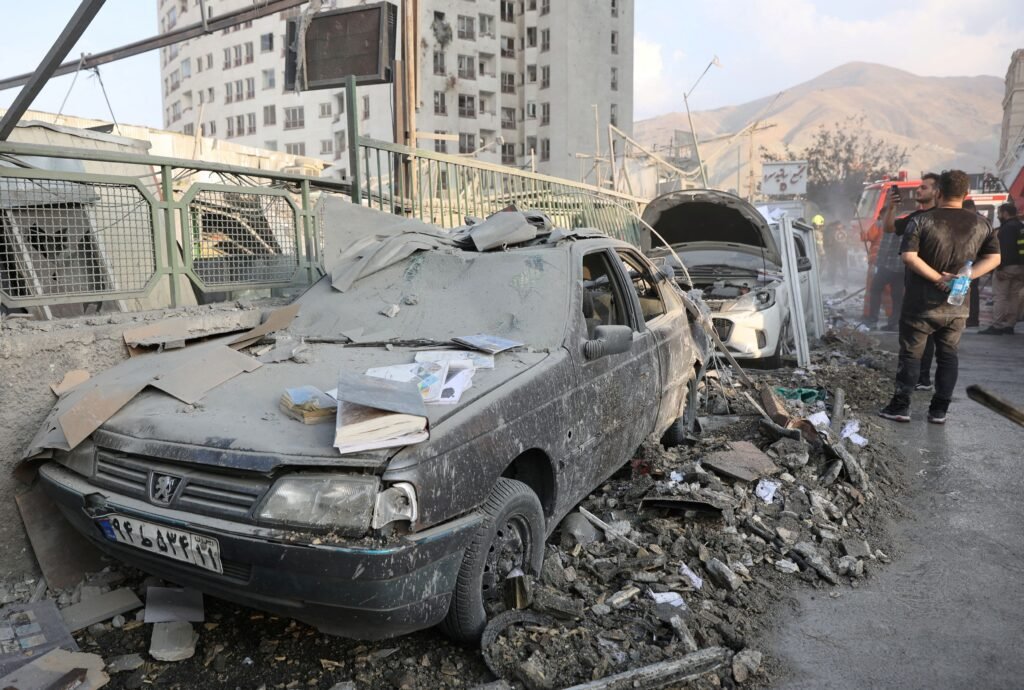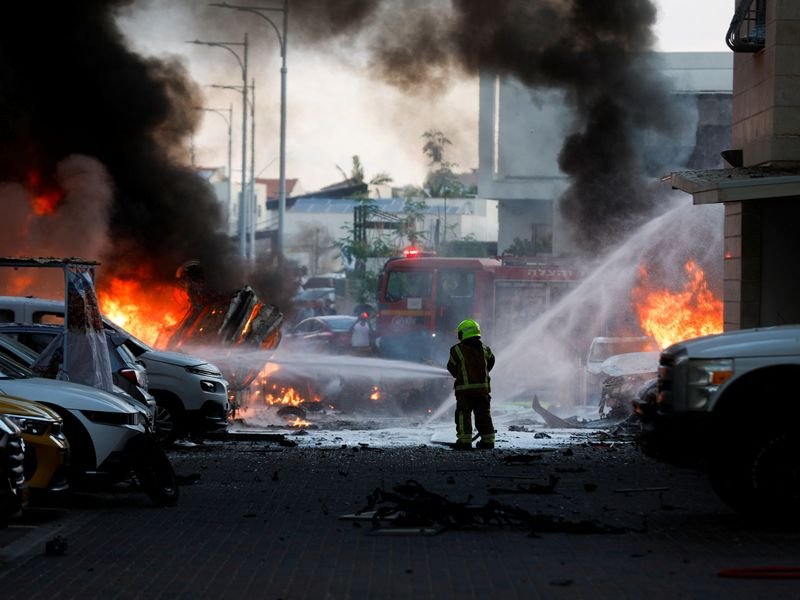
Tensions between Israel and Iran are nothing new, but when Israel conducted a direct military strike against Iran, the world watched in shock. Many asked the pressing question: Why did Israel attack Iran? The reasons are layered, complex, and rooted in a volatile history of mutual distrust, geopolitical ambitions, and looming nuclear threats.
Historical Context
A Once-Cordial Relationship
Believe it or not, Israel and Iran were once allies. Before the 1979 Islamic Revolution, Iran recognized Israel and maintained diplomatic ties. But everything changed when the Shah was overthrown and Ayatollah Khomeini came to power, ushering in an era of theocratic anti-Western, anti-Israel policy.
Iran’s Revolutionary Ideology
Iran’s new regime viewed Israel as an illegitimate state. Over the years, it supported various groups committed to Israel’s destruction, including Hezbollah and Hamas. This set the stage for a slow-burning conflict that would simmer for decades.
The Nuclear Issue
A Looming Red Line
One of the biggest flashpoints has been Iran’s nuclear program. Israel has made it crystal clear: it will not tolerate a nuclear-armed Iran. Prime Minister Benjamin Netanyahu has repeatedly referred to a “red line” that, if crossed, would force Israel to act militarily.
JCPOA and Its Fallout
The 2015 Joint Comprehensive Plan of Action (JCPOA) temporarily eased tensions by curbing Iran’s nuclear development. But the U.S. withdrawal from the deal in 2018, followed by Iran’s resumption of uranium enrichment, reignited Israeli fears.
Why Israel Sees Iran’s Nuclear Program as an Existential Threat

Iranian leaders have made hostile statements over the years—calling for Israel’s destruction or labeling it a “cancerous tumor.” Combined with Iran’s missile development and secret enrichment sites, these threats pushed Israel toward a policy of aggressive deterrence.
Proxy Warfare
Iran’s Militant Network
Rather than attacking Israel directly, Iran has empowered proxies to do its bidding. Hezbollah in Lebanon, Hamas in Gaza, and Shia militias in Iraq and Syria—all receive funding and arms from Tehran.
A Threat on Every Border
This network essentially surrounds Israel with hostile forces. Missiles in southern Lebanon, tunnels from Gaza, and military entrenchment in Syria have turned the region into a powder keg.
Iranian Military Presence in Syria
Too Close for Comfort
Israel has launched hundreds of airstrikes in Syria in recent years, targeting Iranian weapons convoys and military installations. The fear? That Iran is trying to establish a permanent military base near Israel’s northern border.
Supply Chains and Strategy
The Iranian land corridor from Tehran to Beirut through Iraq and Syria is viewed as a major strategic threat. Cutting off this chain is a core Israeli objective.
Cyber Attacks and Covert Operations
The Digital Battlefield
Before the missiles flew, the two countries were already at war in cyberspace. The infamous Stuxnet virus—allegedly a joint U.S.-Israel operation—crippled Iranian centrifuges.
Assassinations and Espionage
Israeli intelligence (Mossad) has carried out daring operations inside Iran, including the assassination of nuclear scientists and the theft of nuclear archives from Tehran.
The Direct Attack: What Happened

The Strike Itself
The recent attack—targeting Iranian military infrastructure, possibly even a nuclear site—was precise and powerful. While Israel did not officially claim responsibility at first, international observers widely concluded it was an Israeli operation.
Casualties and Damage
Early reports indicated significant destruction of weapons depots, radar stations, and possibly a research facility tied to missile production. Iran responded with threats, but opted for limited retaliation—at least initially.
International Reaction
A Divided World
The United States cautiously supported Israel’s right to self-defense while urging de-escalation. European nations expressed concern about regional instability. Russia and China condemned the attack, calling it a violation of sovereignty.
Domestic Pressures in Israel
Politics and Public Opinion
The Israeli government, under mounting internal pressures—including political gridlock and public protests—may have seen the strike as a show of strength. Netanyahu’s government has long prioritized Iran as Israel’s number one external threat.
Domestic Factors in Iran
Discontent at Home
Iran has been grappling with inflation, sanctions, and widespread protests. Some analysts believe that escalating conflict with Israel helps the regime rally nationalist support and distract from domestic woes.
Strategic Calculations
Why Now?
The timing of the attack appears calculated. With U.S. elections on the horizon, regional alliances shifting, and Iran reportedly accelerating uranium enrichment, Israel may have believed this was the last window to act.
Preventive vs. Preemptive
While a preemptive strike is done to forestall an imminent attack, a preventive strike is aimed at eliminating a future threat. Israel’s action seems to fall into the latter category—a calculated move to degrade Iranian capabilities before they become unmanageable.
Was It Worth the Risk?
War or Warning?
Some say this was a warning shot—not a declaration of war. But with Iran vowing revenge and mobilizing regional militias, the risk of escalation remains dangerously high.
The Abraham Accords and Arab Reaction
Shifting Alliances
Interestingly, many Arab states—like Saudi Arabia and the UAE—remain quietly supportive of Israeli actions against Iran. The Abraham Accords have brought Israel closer to its former foes, united by a shared fear of Iranian expansionism.
Media Coverage and Public Perception
The Information War
Each side is spinning the story to its advantage. Israeli media touts the operation as a surgical success, while Iranian outlets paint it as an act of cowardice and foreign aggression. International outlets remain split in tone and coverage.
The Road Ahead
Escalation or Diplomacy?
So, where do we go from here? Some hope for a return to diplomatic talks. Others brace for tit-for-tat retaliation, cyber warfare, or worse—a full-scale regional war.

